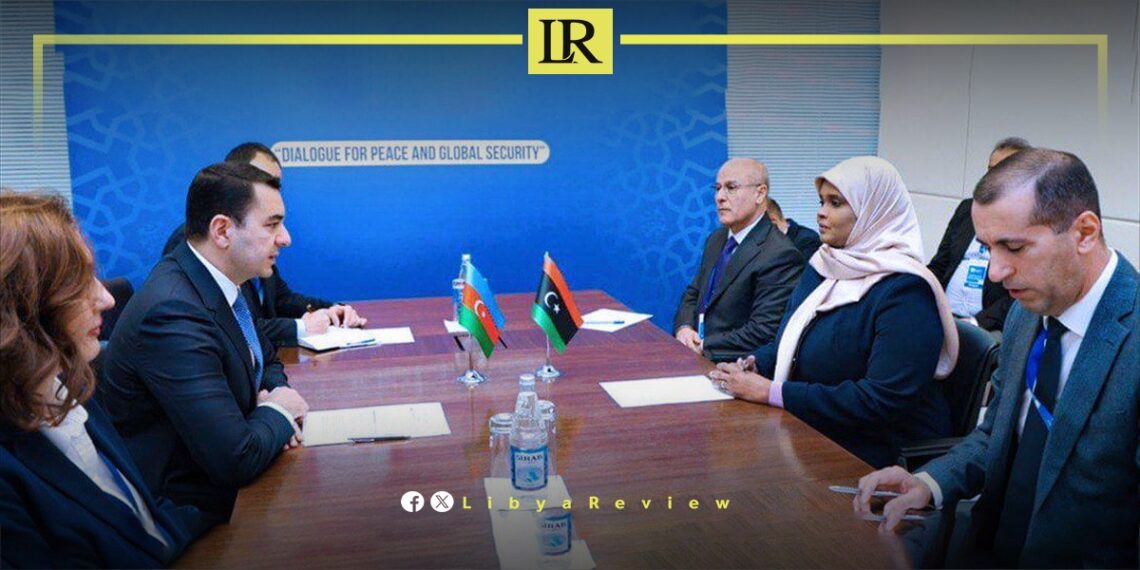Minister of Culture and Cognitive Development in the Government of National Unity (GNU) Mabrouka Toghi, met with Adil Karimli, the Minister of Culture of the Republic of Azerbaijan.
This meeting took place on the sidelines of the sixth World Forum for Intercultural Dialogue in the Azerbaijani capital, Baku.
During the meeting, discussions focused on enhancing cooperation in cultural areas between the two countries, as well as ways to support and develop them.
The meeting was attended by Ambassador Ali Salem Al-Sadiq, Libya’s Ambassador to the Republic of Azerbaijan, and Khalifa Al-Hamdi, Director of the International Cultural Cooperation Department at the Ministry.
Last January, the city of Benghazi, Libya inaugurated the events of “Benghazi, Capital of Culture for the Islamic World” with the presence of the Prime Minister-designate Osama Hammad, along with several officials and delegations from various countries.
Benghazi was chosen in solidarity with the residents of Derna and the Green Mountain, both affected by deadly floods last year.
The Parliament-designated government announced that the events coincide with the city’s “successive reconstruction achievements and development in all cities.”
Benghazi was selected according to the criteria of the Organisation of Islamic Cooperation (OIC), which stipulates that chosen cities contribute to scientific, cultural, Islamic, and historical roles. Previously, Tripoli was selected in 2007.
Celebrations were postponed due to the floods that hit cities and regions in eastern Libya last September.
The event includes 80 cultural, scientific, and artistic activities, such as theaters, festivals featuring various Libyan musical events, book and visual arts exhibitions, and intellectual seminars hosting writers and intellectuals from different Arab and Islamic countries.
Libya has been in chaos since a NATO-backed uprising toppled longtime leader Muammar Gaddafi in 2011. The county has for years been split between rival administrations.
Libya’s economy, heavily reliant on oil, has suffered due to the ongoing conflict. The instability has led to fluctuations in oil production and prices, impacting the global oil market and Libya’s economy.


